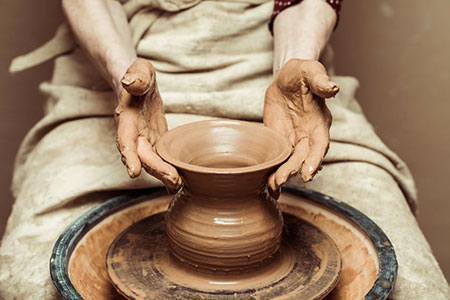disappointment
How To Be Patient In Times Of Crisis
 Just about every day, we face some sort of obstacle, delay in communication, or a situation that doesn’t go our way. And in times of an unexpected crisis, our first response is too assume the worst, or panic.
Just about every day, we face some sort of obstacle, delay in communication, or a situation that doesn’t go our way. And in times of an unexpected crisis, our first response is too assume the worst, or panic.
Negative feelings can creep up and overtake the mind, sending us into fits of rage, sadness or disillusionment, due to the lack of patience in surrendering our control and allowing those emotions to pass with total acceptance.
When we become impatient, our entire being is out of balance and the auric energy field becomes muddy and chaotic. Agitation and strain then become the primary motivator, and there is a loss of self-awareness within.
Impatience never makes things happen faster, or better, and the worst way this can manifest is when we try to force an issue, or get a person to instantly say yes, or go along with our vision.
Whenever impatience or uncomfortable feelings arise, it’s vital to make a conscious effort to redirect that negativity and nip it in the bud, so you can stay calm during the toughest times. Here are some strategies to help alleviate impatience when your feeling triggered.
Breathing
Take several deep breaths from your stomach and exhale out the stress, focusing on your third eye as you release your breath. Think of something funny or inspirational so you don’t unleash unnecessary aggression.
Thank You For Leaving Me
 Heartbreak is never easy. I have heard the words, “But I love him,” so many times after a break-up. I have also heard, “No one can replace her.” I have even heard, “I’ll never even think about another person in this way, or even try to find someone new.”
Heartbreak is never easy. I have heard the words, “But I love him,” so many times after a break-up. I have also heard, “No one can replace her.” I have even heard, “I’ll never even think about another person in this way, or even try to find someone new.”
Who is this mindset hurting? Look at the reality of it. It’s not hurting the other person, who walked out on the relationship. They walked out for a reason. Often they have also moved on with someone new. The only person being hurt, by hanging on, is the person hanging on.
I have also heard, “She is my soulmate,” or “He is my twin flame.” Well, if they are not on the same page as you in this lifetime, and not committed to making the relationship work, then they are not your soulmate, or twin flame. It takes a commitment from both parties.
Love is subjective. Love has to be equal from both people involved. However, when only one has their heart and soul invested, it will never last. If someone is able to walk out on the first argument, it is definitely not meant to be. If there is ever disrespect, it is also not meant to be.
I have also been at this place in my life. I was devastated when my husband walked out. I thought I had failed, but then I realized the truth. The marriage was over long before this happened. The equality of feelings was long gone, and respect was non-existent. He controlled what I did, even how I thought at times, and was wreaking havoc on my self-esteem.
Love Is All You Need
 A popular Beatles song was written circa 1967 by John Lennon, as part of the anti-war movement, with a very simplistic set of lyrics about love. “Love is all you need,” proclaims the song. Simple, yet often so elusive to so many of us.
A popular Beatles song was written circa 1967 by John Lennon, as part of the anti-war movement, with a very simplistic set of lyrics about love. “Love is all you need,” proclaims the song. Simple, yet often so elusive to so many of us.
Love is also a “many-splendored thing,” according to the Andy Williams classic. Yet, it is also complex set of emotions, beliefs, and behaviors that we have learned. Either through witnessing, training and personal experiences, which loop back into our behaviors. It is a dynamic process. These beliefs and emotions are then ‘translated’ into feelings. Feelings of attachment, affection, trust, respect, and commitment.
Love is also a topic of discussion, research and vital part of life dating back through all time. Throughout human history priests, philosophers, poets, artists, musicians, and scientists have all contemplated the mysteries and meaning of love.
And love is more than just a feeling between two people. We can have a love for country, nature, freedom, animals, opera music, or cold beer! And anything else that resonates with our heart.
The challenge for many of us in life is the rollercoaster of chasing love. As humans, we seek companionship, community, a sense of purpose. We seek to love and be loved. And we take many actions and steps towards our own definition of love. Yet, it is a dynamic, elusive, ever-changing target – one influenced and even manipulated by the many facets of human desire and emotions. Also, the sometimes harsh realities of life may take away that which we loved so much.
The Importance Of Self-Trust
 Of all the relationships in our life, none is more complicated or important than the one we have with self. And the cornerstone of this relationship is self-trust. Unfortunately, it is easy to damage the trust we place in ourselves. Why? Because all of us have or will make choices and decisions that don’t produce the desired outcome.
Of all the relationships in our life, none is more complicated or important than the one we have with self. And the cornerstone of this relationship is self-trust. Unfortunately, it is easy to damage the trust we place in ourselves. Why? Because all of us have or will make choices and decisions that don’t produce the desired outcome.
A relationship fails and we blame or question ourselves; a job opportunity eludes us; or a friendship fractures beyond repair. We lose self-trust when we don’t achieve a goal, whatever that goal may be. Then we may begin to question our own abilities, our dreams, and our worthiness to have them manifest in our life.
Every time we replay an event we label a failure the doubt in our own judgment and our self-worth increases. Self-confidence stems from self-trust, so the cycle can be a vicious one.
So, how can we repair self-trust? First, decide to give yourself a break. You made what you believed to be the best decision or choice in the moment. If you are saying, “No, I didn’t, I know I should have done…,” then stop and choose to forgive yourself for not trusting your instincts in that moment. Holding a grudge against yourself only assures that the pattern will repeat.
Next, decide to honor your emotions. If you have made choices and decisions that you perceive as a failure, then the tendency is to begin to substitute the opinions of others over our own intuition, desires and dreams. This pattern can lead to co-dependency, confusion and fear. Self-trust is harnessed when we follow our sacred wisdom, instead of looking outside ourselves to provide inner peace.
The Importance Of Self-Trust
 Of all the relationships in our life, none is more complicated or important than the one we have with ourselves. The cornerstone of this relationship is self-trust.
Of all the relationships in our life, none is more complicated or important than the one we have with ourselves. The cornerstone of this relationship is self-trust.
Unfortunately it is quite easy to damage the trust we place in ourselves. Why? Because during our lives all of us have, or will, make choices and decisions that don’t produce the desired outcome.
We all fail, and we all make mistakes. A relationship fails and we blame or question ourselves. A job opportunity eludes us, or a friendship fractures beyond repair.
We lose self-trust when we don’t achieve a goal, whatever that goal may be. Then we begin to question our abilities, our dreams and our worthiness to have them manifest in our life.
Every time we replay an event that we label a failure, the doubt in our judgment and our self-worth increases. Self-confidence stems from self-trust, so the cycle can become vicious and destructive.
So, how can we repair self-trust? First, decide to give yourself a break. You made what you believed to be the best decision or choice in the moment. If you are saying, “No, I didn’t! I knew I should have done it differently,” then stop the that negative thought pattern, and choose instead to forgive yourself for not trusting your instincts in that moment. Holding a grudge against yourself only assures that the pattern will repeat.
Next, decide to honor your emotions. If you have made choices and decisions that you perceive as a failure, then the tendency is to begin to substitute the opinions of others over our own intuition, desires and dreams. This pattern can lead to co-dependency, confusion and fear. Self-trust is harnessed when we follow our sacred wisdom, instead of looking outside ourselves to provide inner peace.

